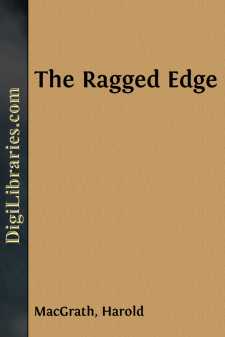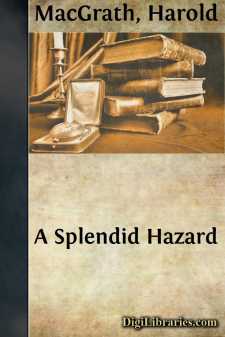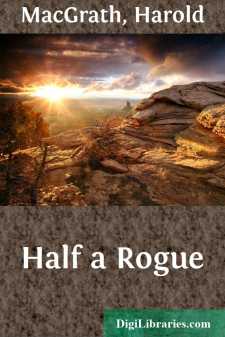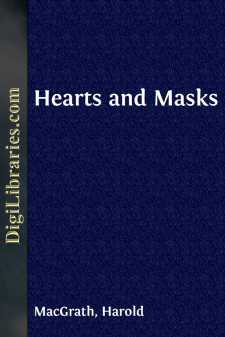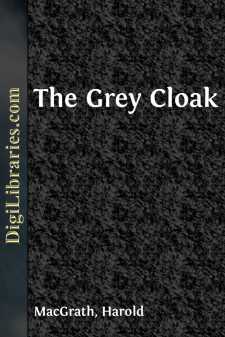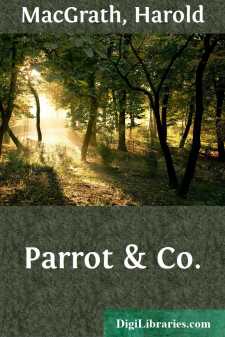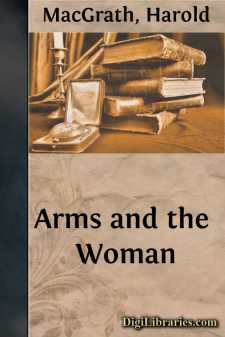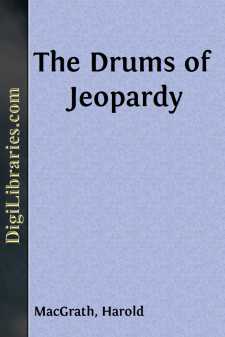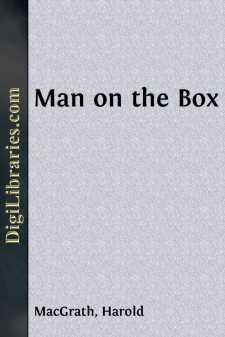Categories
- Antiques & Collectibles 13
- Architecture 36
- Art 48
- Bibles 22
- Biography & Autobiography 813
- Body, Mind & Spirit 142
- Business & Economics 28
- Children's Books 15
- Children's Fiction 12
- Computers 4
- Cooking 94
- Crafts & Hobbies 4
- Drama 346
- Education 46
- Family & Relationships 57
- Fiction 11828
- Games 19
- Gardening 17
- Health & Fitness 34
- History 1377
- House & Home 1
- Humor 147
- Juvenile Fiction 1873
- Juvenile Nonfiction 202
- Language Arts & Disciplines 88
- Law 16
- Literary Collections 686
- Literary Criticism 179
- Mathematics 13
- Medical 41
- Music 40
- Nature 179
- Non-Classifiable 1768
- Performing Arts 7
- Periodicals 1453
- Philosophy 64
- Photography 2
- Poetry 896
- Political Science 203
- Psychology 42
- Reference 154
- Religion 513
- Science 126
- Self-Help 84
- Social Science 81
- Sports & Recreation 34
- Study Aids 3
- Technology & Engineering 59
- Transportation 23
- Travel 463
- True Crime 29
The Ragged Edge
by: Harold MacGrath
Description:
Excerpt
CHAPTER I
The Master is inordinately fond of young fools. That is why they are permitted to rush in where angels fear to tread—and survive their daring! This supreme protection, this unwritten warranty to disregard all laws, occult or apparent, divine or earthly, may be attributed to the fact that none but young fools dream gloriously. For such of us as pretend to be wise—and we are but fools in a lesser degree—we know that humanity moves onward only by the impellant of fine dreams. Sometimes these dreams are simple and tender; sometimes they are magnificent.
With what airs we human atoms invest ourselves! What ridiculous fancies of our importance! We believe we have destinies, when we have only destinations: that we are something immortal, when each of us is in truth only the repository of a dream. The dream flowers and is harvested, and we are left by the wayside, having served our singular purpose in the scheme of progress: as the orange is tossed aside when sucked of its ruddy juice.
We middle-aged fools and we old fools can no longer dream. We have only those phantoms called memories, which are the husks of dreams. Disillusion stands in one doorway of our house and Mockery in the other.
This is a tale of two young fools.
* * * * *
In the daytime the streets of the ancient city of Canton are yet filled with the original confusion—human beings in quest of food. There is turmoil, shouts, cries, jostlings, milling congestions that suddenly break and flow in opposite directions.
It was a gray day in the spring of 1910. A tourist caravan of four pole-chairs jogged along a narrow street. It had rained during the night, and the patch-work pavement was greasy with mud. From a bi-secting street came shouting and music. At a sign from Ah Cum, official custodian of the sightseers, the pole-chair coolies pressed toward the left and halted.
A wedding procession turned the corner. All the world over a wedding procession arouses laughter and derision in the bystanders. Even the children jeer. It may be instinctive; it may be that children vaguely realize that at the end of all wedding journeys is disillusion.
The girl in the forward chair raised herself a little, the better to see the gorgeous blue palanquin of the dimly visible bride.
"What a wonderful colour!" she exclaimed.
"Kingfisher feathers," said Ah Cum. "It is an ordinary wedding," he added; "some shopkeeper's daughter. Probably she was married years ago and is now merely on the way to her husband's house. The palanquin is hired and so is the procession. Quite ordinary."
The air in the narrow street, which was not eight feet wide, swarmed with smells impossible to define; but all at once the pleasantly pungent odour of Chinese incense drifted across the girl's face, and gratefully she quickened her inhalations.
In her ears there was a medley of sound: wailing music, rumbling tom-toms and sputtering firecrackers. She had never before heard the noise of firecrackers, and in the beginning the sputtering racket caused her to wince....


